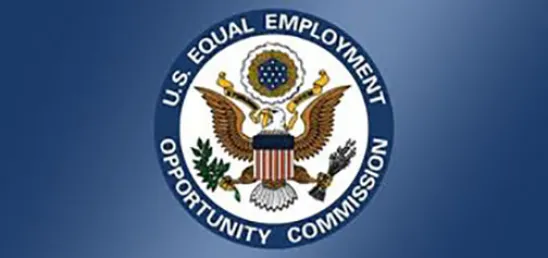On March 27, 2020, the EEOC posted a pre-recorded webinar in which the agency answered questions related to the impact of COVID-19 on the laws that the agency enforces.
At the outset, the EEOC issued a disclaimer that guidance from the Centers for Disease Control (“CDC”) and state or local public health authorities should not hinder employers’ ability to comply with applicable workplace laws. The EEOC then addressed various topics that employers have been grappling with in the face of the COVID-19 pandemic. Below are highlights of the EEOC’s guidance on those topics.
COVID-19 and the ADA
-
Employers may take the temperature of all employees who will be physically entering the workplace. Employers may also ask such employees whether they have COVID-19 or symptoms associated with COVID-19 or whether they have been tested for COVID-19. If an employee refuses to have his or her temperature taken or answer COVID-19 related questions, the employee may be barred from physically entering the workplace. Employers generally may not make these inquiries of employees who are teleworking.
-
If an employer wishes to only ask a particular employee if he or she has COVID-19 or only require that the particular employee have his or her temperature taken, the employer must have a reasonable belief, based on objective evidence, that the person might have COVID-19.
-
Rather than asking an employee whether or not a member of the employee’s family has COVID-19, the agency suggests that employers should ask whether the employee has had contact with anyone who the employee knows has COVID-19.
-
Employers may notify public health authorities if they learn that an employee has COVID-19. However, when doing so, employers should not disclose the employee’s identity.
-
Supervisors who are working remotely should strive to comply with the ADA requirement that medical information be stored separately from regular personnel files. If they are not able to do so, they should still take efforts to safeguard this information to the greatest extent possible until it can be appropriately stored.
-
The EEOC’s position is that: (1) COVID-19 satisfies the direct threat standard, but (2) it is unclear at this time whether COVID-19 qualifies as a disability under the ADA. The agency anticipates providing clarification on this issue in the future.
-
Employers generally do not have to provide a reasonable accommodation to an employee who lives in the same household as someone who, due to a disability, is at a greater risk of illness if he or she contracts COVID-19.
-
During the pandemic, employers may wish to consider providing requested accommodations on a temporary basis while considering the accommodation request.
-
During the pandemic, employers may learn that employees can satisfactorily perform essential functions while working remotely. Therefore, an employee who has previously been denied teleworking as a reasonable accommodation because of concerns that the employee will not be able to perform essential functions from home, may be entitled to teleworking as a reasonable accommodation after the pandemic has ended.
Other EEO Laws
-
Employers cannot exclude workers from the workplace on the basis that they are 65 or older because they are at a higher risk of experiencing severe symptoms if they contract COVID-19.
-
Employers cannot exclude pregnant workers from the workplace because they may be at a higher risk for severe illness if they contract COVID-19.
-
Employers are not necessarily required to grant pregnant workers’ requests to telework because of the pandemic, but should grant pregnant workers the same adjustments to work conditions as provided to other similarly situated employees.
The agency also highlighted the availability of two publications related to COVID-19: “Pandemic Preparedness in the Workplace and the Americans with Disabilities Act” and “What You Should Know About the ADA, the Rehabilitation Act, and COVID-19.” Employers with questions about compliance with EEO laws during the pandemic are encouraged to contact their legal counsel for guidance.





 />i
/>i
